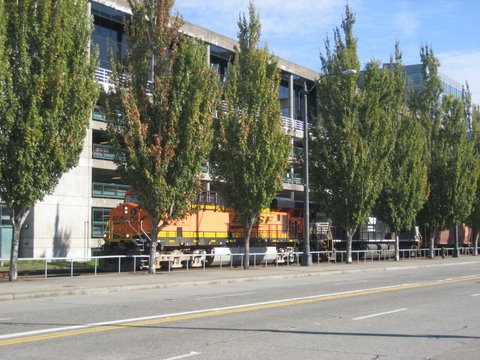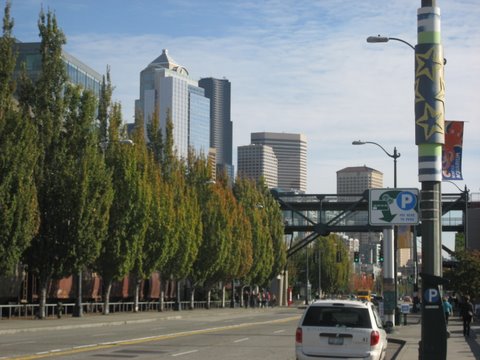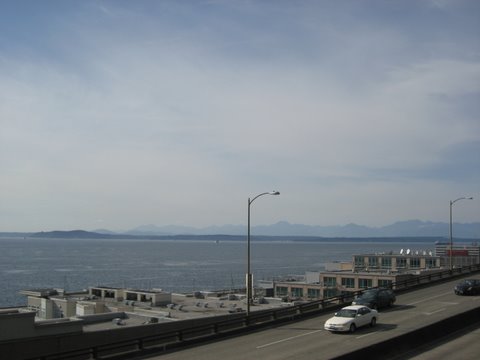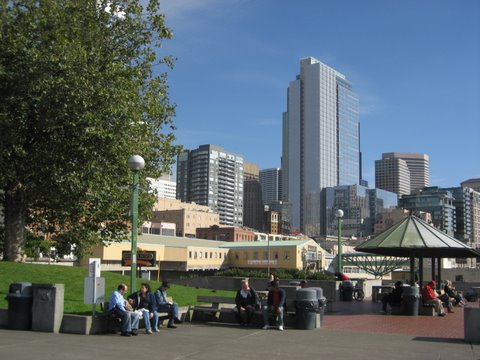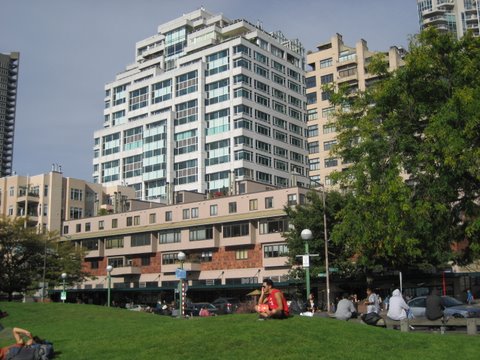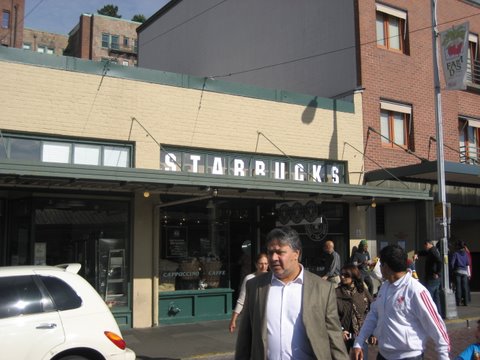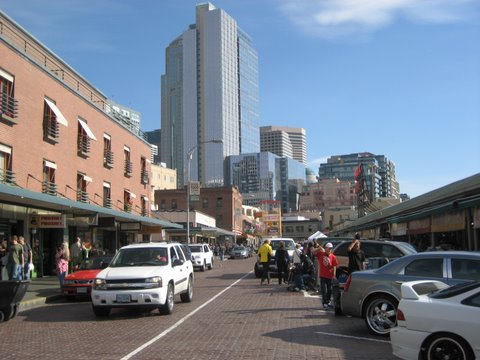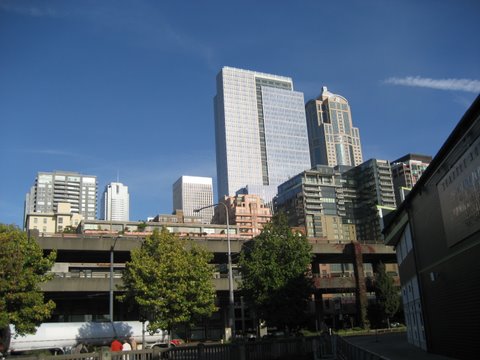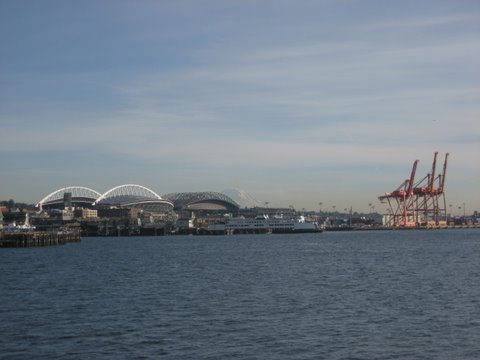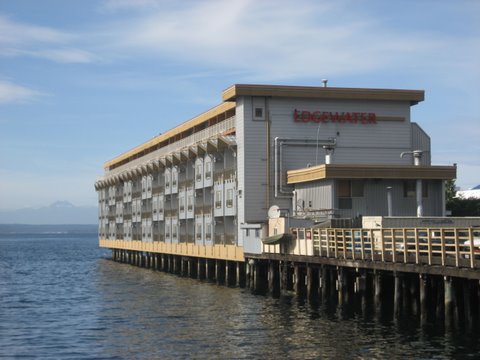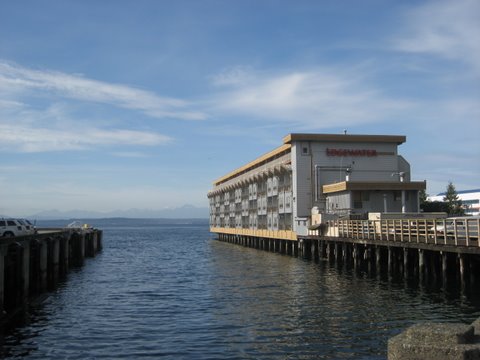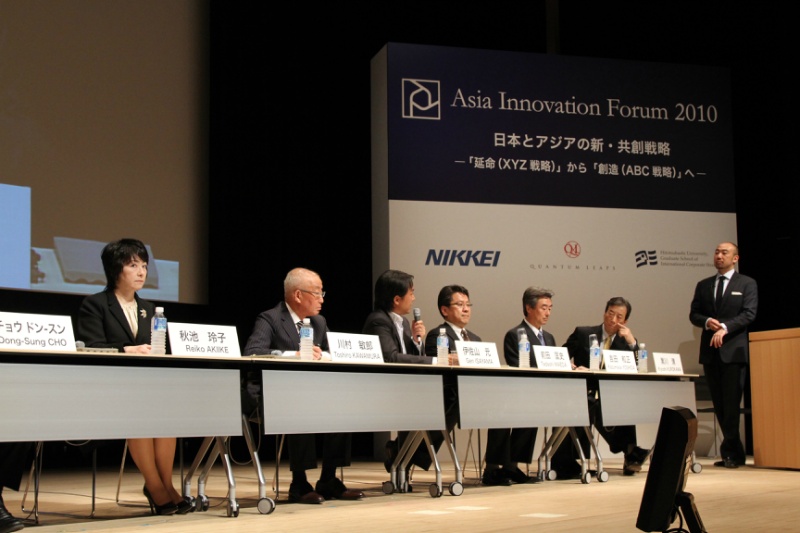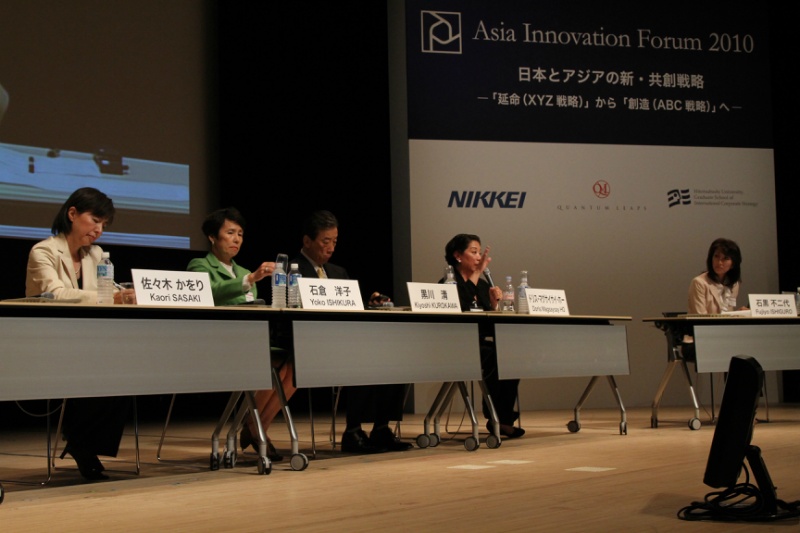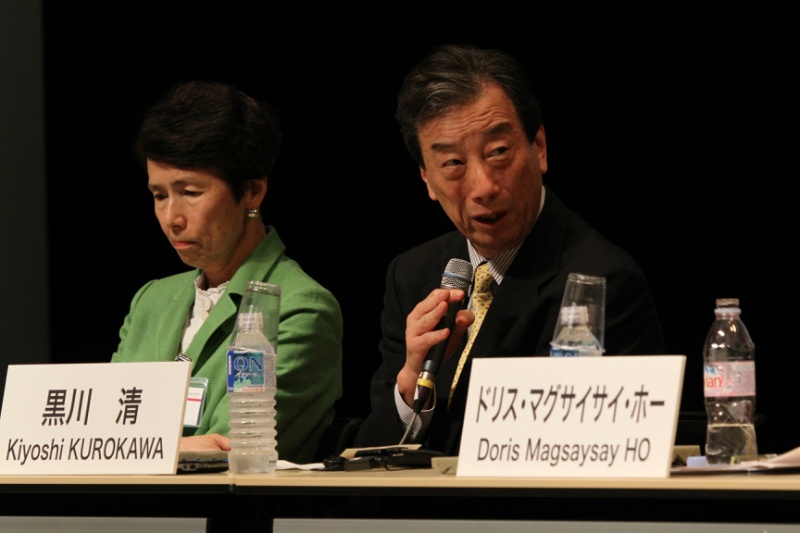→Japanese
Please click here for the photos.
After attending two conferences from the morning on August 27th, I returned home to pack my baggage and be at Narita late in the afternoon. This was the reason why I was unable to attend the lecture of Professor Sandel.
The plane took off from Narita shortly after 9pm arriving at Brisbane Airport at 7am after a 9 hours’ flight. The cabin was not too spacious although I was in the business class, the seats did not become near-flat, so I did not get much sleep. At Brisbane airport I spent 4 hours for transit to JQ (JetStar) for an 1hour and 40 min. flight to Hamilton. Then finally I got on a cruiser to Hayman Island. At last I am here to join the ‘ADC Forum Retreat’. Regretfully I have been unable to accept their kind invitation for a few years because of my schedule elsewhere.
Most of the people on the cruiser were those who came for the meeting. Inside the cruiser was very comfortable, cruising moved smoothly on the quiet surface of the sea, we enjoyed the nice view of many islands that the boat passed by. A whale was seen along. We were told that we were cruising along the route of the whales. The weather was not too wonderful but was not too cold either. I think it was about 70?. A bit cloudy, rain might be falling any minute.
As we were enjoying glasses of champagne and conversation for about an hour, the boat arrived at the Hayman Island. We wasted no time to check in to the hotel and were guided to our rooms by 4pm. It took quite a while for my baggage to be delivered to my room, however.
The time flew quickly and the ‘ADC Form’ (Ref.1) started at 4:45 pm. Since I was scheduled to be on ‘Opening Plenary: Australia ?Big questions and new unknowns’ I had no choice but to go to the venue and on the stage in my jeans (to my relief everybody was dressed casually, no one had ties on…)
The federal election of 6 days ago resulted in both Liberal/National coalition (Mr Abbott) and Labor (Ms Gillard) parties gaining less than half of the seats by a few seats, both now starting to negotiate with the minority parties for cooperation. Such phenomenon (is called ‘Hung Parliament’, maybe the same as the ‘Twisted Parliament (Nejire Kokkai)’ in Japan) was never experienced in this country in the past. So the argument follows that this might be the end of the ‘Era of 2 Major Parties’. The same thing happened at the General Election in Great Britain, remember? Maybe this shows how values of the people are changing and diversifying in this global age beyond just two parties to choose.
The Opening Panel was hosted by the well known anchor person of BBC, Nik Gowing , Part-1 started with a 15 minutes’ comments on the federal election by Ms Annabel Crabb, the chief political writer of ‘ABC Online’, followed by the vibrant discussions by 3 Panelists.
Part-2 started by a 20 minutes’ speech by ‘Lord Nicholas Stern’ on Climate Change and (its) challenge for economic growth, reflecting analyses of economic growth cycle led by technology innovation, each lasting 50-60 years after the industrial revolution; with changes in social structure and function. Then followed a panel by Dr Raghida Dergham, a columnist and a reporter on diplomacy, Bror Saxburg, Chief Learning Officer of Kaplan, Dr. Daniel Shapiro of Harvard University and myself.
Both discussions at ‘Part 1’ and ‘Part 2’ were extraordinarily interesting and stimulating.
The federal election in Australia is one thing, but on the other hand, in Japan, there were 5 prime ministers in 4 years after Mr Koizumi, and just a week ago Mr. Ozawa announced that he will run for the head, thus for the prime minister, in the Democratic Party of Japan which means that we might have 6 prime ministers in 4 years. In Australia, the latest election result raised a big political discussion. How about Japan? Aren’t we too optimistic, too easy going, not analytical on agendas of canditates, and implications? Anyhow the way of thinking and behavior of our ‘leaders’ are ‘in the teacup’ mode – just too much. Good grief…. Nor do I recall hearing any sort of ‘national vision and strategic policies for the issues’ from any of those leading legislators to begin with.
At dinner, I was seated next to Lord Stern so was able to have a very good intensive discussion with him. This was a great bonus for me. Actually, I missed chance to see him in Tokyo for 2 times in these two years. This was a part of our conversation, too.
After dinner, the final session ‘Science, Public Policy and the Elusive Common Ground’ started at 10pm. I was one of the 2 panelists with Prof Penny Sackett, the ‘Chief Scientist for Australia’ for the Australian government. This 1 hour session was hosted by CSIRO’s CEO, Dr Megan Clark.
The whole day was full of learning and pleasure.

